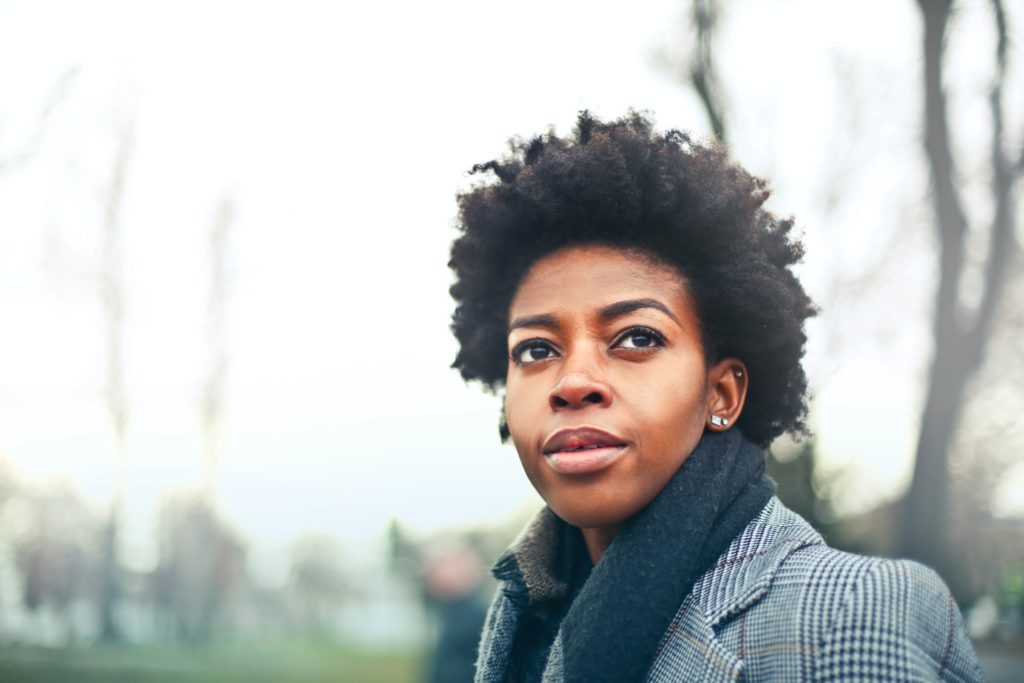Some customers are threatening to boycott Clicks, after screenshots from the retailer’s website show them using unfavourable terms to describe natural black hair.
In the images, black models with natural textured hair are used to show off ‘dry and damaged’ or ‘frizzy and dull’ hair while white models with straight, blonde hair are used as the faces of ‘fine and flat’ or ‘normal’ hair.


Twitter users were quick to respond, calling Clicks out for what they say is racist behaviour. #Clicks is trending on Twitter, with over 31 000 tweets since the screenshots were shared on Thursday, September 3.
Racism make people believe we have “hard, strong unruly” hair when we actually have delicate, fragile, sensitive Afro hair that needs to be babied. So sensitive we have to wrap it in silk at night, and leave it untouched for it to grow.
Black hair is political.
Fcuk Clicks. pic.twitter.com/DgspG71VpD
— A Black Woman ?? ?? (@SneKhumaloSA) September 4, 2020
I’m so tired of brands using our Blackness as a publicity stunt or advertising tool. I’m so tired of educating corporates about Black hair, Black skin, Black lives.
This is blatant racism @Clicks_SA pic.twitter.com/lFocDEaV92
— Tshepiso Vanessa Ralehlathe (@Tshepiso_Says) September 4, 2020
Dear @Clicks_SA
Our hair is not dry, damaged, frizzy and dull. It’s called afro! It’s normal and beautiful too. We are proud of our hair textures and don’t need any validation from you. Lastly you need a new marketing team which is not racist. Shame on you! #clicksmustfall pic.twitter.com/N2LpLg9Q0T
— Tshegofatso (@minnietshego) September 4, 2020
Following the backlash, Clicks issued a statement apologising for the labels.
“We would like to issue an unequivocal apology. We have removed the images which go against everything we believe in. We do not condone racism and we are strong advocates of natural hair. We are deeply sorry and will put in place stricter measures on our website,” they wrote on Twitter.
“We have made a mistake and sincerely apologise for letting you down. We recognise we have a role to play in creating a more diverse and inclusive S.A, starting with our website content. We know we need to do better, and commit to ensuring our content better reflects this value.”
We have made a mistake and sincerely apologise for letting you down. We recognise we have a role to play in creating a more diverse and inclusive S.A, starting with our website content. We know we need to do better, and commit to ensuring our content better reflects this value.
— Clicks (@Clicks_SA) September 4, 2020
This not an isolated issue. For decades, black, ethnic or coarser hair has been denigrated and called ugly or undesirable. Black women have also been called ‘unprofessional’ for wearing their hair in certain styles like cornrows, afros and braids. Yet, these same styles have become trendy in recent years when worn by white women like Kylie Jenner and Kim Kardashian.
Clicks labelling straight, white hair as ‘normal’ by virtue makes black hair the ‘other’, or abnormal. This is especially problematic in a country where 80,7% of the population is black African, according to a 2019 Stats SA mid-year population estimate.
Picture: Pexels

